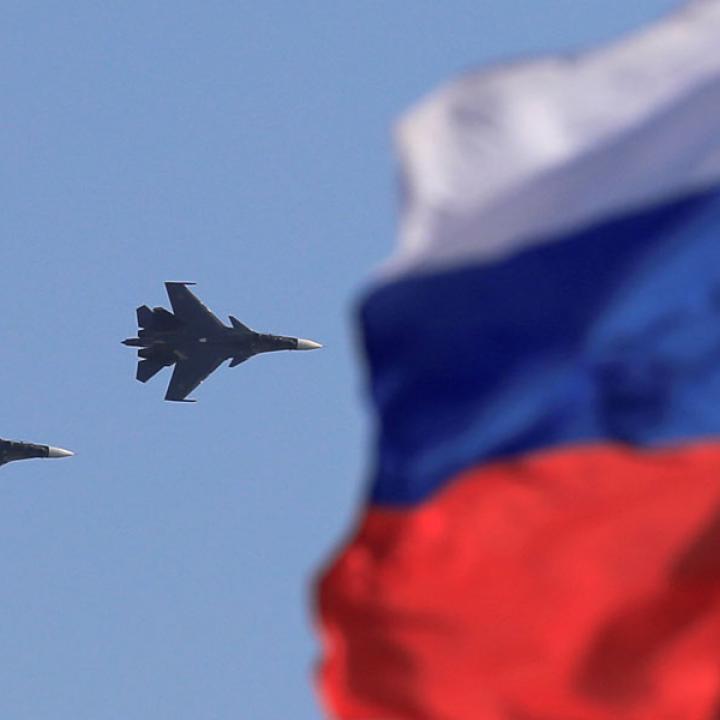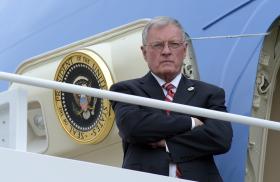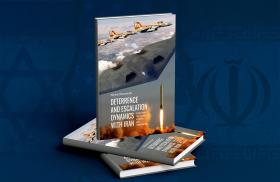
- Policy Analysis
- Articles & Op-Eds
The Window to Counter Russia in Syria Is Closing
Also published in RealClearWorld

By enticing Damascus with “no strings attached” deals, Moscow is once again trying to use Syria as a long-term strategic cudgel against U.S. interests, making it all the more urgent for Western governments to make fuller use of their current economic leverage.
Russia is quietly reconsolidating influence in Syria. The fall of Moscow-backed Syrian dictator Bashar al-Assad almost a year ago ushered in a once-in-a-generation opportunity to reshape the balance of power in the Middle East in favor of the US. This window may be closing. Failure to counter Russia in Syria will cost the West globally.
This month, Vladimir Putin hosted Syrian President Ahmed al-Sharaa for the first time since the fall of Assad. Al-Sharaa seeks to “redefine” relations with Moscow. For Russia, Syria is important because of its strategic location on the Eastern Mediterranean. It allows power projection into the Middle East, Africa, NATO’s southern flank, along with all of southern Europe. With Russia’s war raging in Ukraine, access to the Eastern Mediterranean is a crucial logistics route.
The spotlight on Russia in Syria has largely fallen off. But Russia’s presence there is slowly reconsolidating. Moscow retains access to Syria’s military bases in Tartus and Khmeimim and may repurpose them for additional tasks, such as hubs for sending humanitarian aid to Africa. Sharaa confirmed at the meeting with Putin that he will honor past deals made with Russia, which confirms that Russian bases are safe.
Russia remains the primary supplier of Syria’s oil, and it prints Syrian currency. The Russian embassy remains open. With fewer restrictions on economic transactions in Syria, Russia is well positioned to cement stronger ties through the use of opaque business intermediaries.
In early September, Russia’s deputy prime minister Alexander Novak led a delegation to Syria, offering aid and energy cooperation. Earlier, the Syrian government invited Tatneft, Russia’s fifth largest energy company, along with other Russian companies, to resume operations. Russia faces no embargo in supplying oil to Syria, and while it is in the US interest to keep Syria stable, it also cannot come at the expense of other foreign policy priorities.
Prior to this month’s visit to Moscow, al-Sharaa repeatedly emphasized the necessity of ties with Russia. From a purely pragmatic standpoint, Syria still depends on Russia for military equipment and diplomatic and economic support, even as it charts a more pro-Western orientation.
Indeed, Assad’s fall itself was not the turning point for Russian influence that many in the West thought it might be. A recent interview with al-Sharaa helps us clarify why Assad’s fall has not dealt Russia a fatal strategic blow. Al-Sharaa revealed that when his forces led the military offensive that toppled Assad, they entered into secret negotiations with the Russians to reach an understanding. Sharaa’s forces moved into the city of Homs, Russia “stayed away from the battle,” he said, while Sharaa’s forces avoided attacking Russia’s Khmeimim airbase. Thus, Russia chose to abandon Assad but retain access to Syria—and an important point of influence in the country—through ties with its new leadership.
Failure to counter Russia’s continuing ties in Syria will cost the US its credibility with allies and partners in Europe and the Middle East. Disengaging will also provide Russia with additional resources to continue its war on Ukraine and, by extension, its global effort to diminish American influence in favor of a multi-polar world. Moscow’s policy in Syria was always focused on achieving this bigger objective for Vladimir Putin, rather than about Assad or even Syria itself. Failure to push back on Russia in Syria now will undermine US goals with regard to Europe, Ukraine, NATO, and global great power competition.
American policymakers have long said that Russia cannot profit from Assad’s war crimes, but Russia is already profiting by expanding economic and other ties in post-Assad Syria. Neither Assad nor Vladimir Putin were held accountable for the war crimes they committed in Syria, including the use of torture and indiscriminate bombings of civilians. Moscow used Syria as a testing ground for military hardware and tactics that the Kremlin later deployed in Ukraine.
While Moscow’s influence in Syria is now severely diminished compared to when Assad held power, this is a long game for the Kremlin. Moscow is taking a more cautious approach and slowly building ties on multiple fronts, all while presenting itself as a counterweight to other external actors in Syria. Neither Sharaa himself, nor external actors such as Israel, are in a hurry to deny Russia this role.
Moscow is well-positioned for a resurgence, provided the West does not counter those ambitions. Unlike other actors in Syria currently playing a more dominant role in Syria such as Turkey, Moscow retains the advantage of ties to all sides and can later rely on them for support, including the Syrian Democratic Forces, the Alawites, and the Druze. Moscow can be assumed to use these ties to exacerbate ethnic and other tensions that help keep Syria weak and divided, making the country more susceptible to influence and manipulation.
The West needs to act now before the window of opportunity to counter Russia closes. It needs to bolster better alternatives to Russia in Syria while pressuring Sharaa to constrain Moscow. The West can use economic leverage to do so. Syria needs a functioning economy. Russia cannot provide them with one, and Damascus wants engagement with the West.
If there are opportunities for the Russians to insert themselves wherever the West is absent, they will be sure to remind the Syrian government that Russian support will come quickly and with no strings attached, in contrast to democracies that delay aid while asking for improvements in human rights. Should ISIS resurge, Russia will not counter it with any consistency. Russia’s influence will ensure greater instability in Syria and, by extension, the Middle East. Moscow could exacerbate existing regional tensions to distract the West, potentially force it to expend its resources in future conflicts, and divert attention from Ukraine. The Middle East remains an important theater of Moscow’s broader confrontation with the West. Failure to stop Putin will lead to Russia’s resurgence in the region.
Anna Borshchevskaya is the Harold Grinspoon Senior Fellow in The Washington Institute’s Diane and Guilford Glazer Foundation Program on Great Power Competition and the Middle East. This article was originally published on the RealClearWorld website.



